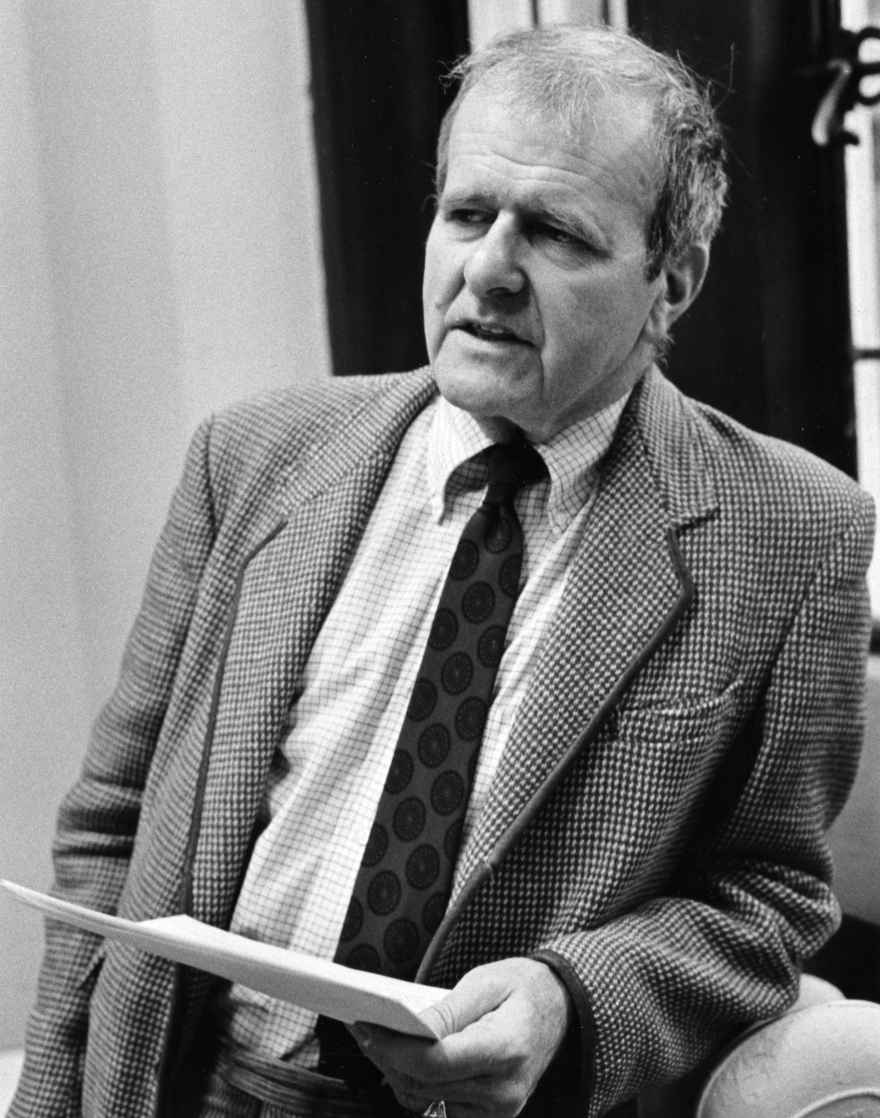Eric P. Hamp, Renowned Scholar of Indo-European Linguistics, 1920-2019

During his 41-year career at the University of Chicago, Professor Emeritus Eric P. Hamp became one of the world’s foremost scholars of Indo-European linguistics. Not only did he base much of his scholarship on lesser-known languages and dialects, including Albanian, Breton, Quileute, Ojibwa, Arvanitika, Welsh, Irish, and Scottish Gaelic, but his colleagues said he rescued many of the obscure ones.
Hamp, who passed away on Feb. 17 in Traverse City, Michigan, at age 98, compared modern languages to reconstruct how our common ancestors spoke thousands of years ago—long before language was recorded. He wrote and edited more than 3,500 articles and reviews in scholarly journals, ranging from topics in linguistics, anthropology, and braille reading. Among academics, he was known for writing short papers of two to four pages, which colleagues say were incisive, brilliant, and concise. He continued to influence his field even after his retirement in 1991—conducting research, writing papers, and presenting his work at conferences.
“Eric was the master of so much data and so many languages that he could see connections that other scholars could not,” said Victor A. Friedman, the Andrew W. Mellon Distinguished Service Professor Emeritus in the Humanities at UChicago. “He contributed significantly to our understanding of the histories of every branch of the Indo-European languages and how they are related. Eric mastered the fundamental principles of historical linguistics, and he used them to create new knowledge.”
Hamp taught from 1950 to 1991 at UChicago, where he was the Robert Maynard Hutchins Distinguished Service Professor Emeritus of Linguistics, Slavic Languages and Literatures, Psychology, and the Committee on the Ancient World. He served as chair of the Department of Linguistics from 1966 to 1969 and as director for the Center for Balkan and Slavic Studies from 1965 to 1991.
Hamp studied the similarities in grammar, syntax, vocabulary, and phonology among the Balkan languages, was a scholar of Native American languages, and served as an editor of the International Journal of American Linguistics. Hamp also served as past president of the Linguistics Society of America.
“Eric was a master of working across different languages and discovering the mutual influences shaping those words, what the words mean, and how the words are used,” said Michael Silverstein, the Charles F. Grey Distinguished Service Professor of Anthropology, of Linguistics, of Psychology, and the Committee on Interdisciplinary Studies in the Humanities at UChicago. “He could determine the area of people’s local culture and the history of what this word form meant to us.”
On his 92nd birthday in 2012, Posta Shqiptare, the national postal service of Albania, honored Hamp with a stamp in a series commemorating three foreign Albanologists—he was the only living Albanologist recognized.
Harvard University scholar Jay H. Jasanoff recalled that Hamp was an amazing polymath who also was interested in storytelling and people. “Although Eric spoke many languages and accumulated enormous information on languages, Albanian was his first love,” said Jasanoff, the Diebold Professor of Indo-European Linguistics and Philology.
In 1965, Yale doctoral student Sarah Thomason met Hamp in Yugoslavia. “Eric invited several students to a bar at the U.S. Embassy in Belgrade, where he ordered our drinks in Albanian from the Albanian waiters. The waiters were blown away by his ability to speak their language and of the uncommon respect he showed them,” said Thomason, the Bernard Bloch Distinguished University Professor of Linguistics at the University of Michigan. “Eric was erudite, kind, and diligent. He could not have written so many papers without working very hard and constantly.”
His former student at UChicago, Terrence Kaufman (AM’59) became a colleague of Hamp’s and frequently interacted with him. “Eric had deep knowledge about linguistics, languages, and cultures,” said Kaufman, Professor Emeritus in the Department of Anthropology at the University of Pittsburgh. “He was a careful scholar, and Eric was almost always right.”
Hamp was born on November 16, 1920, in London. Entering Amherst College at age 16, he received his BA in 1942. After serving in the U.S. Army from 1942 to 1947, Hamp resumed his studies, earning his MA and PhD at Harvard University. He began his career at the University of Chicago as an instructor in 1950, advanced to an assistant professor in 1953, earned tenure in 1958, and was promoted to professor in 1962.
He is survived by his wife of 67 years, Margot; two children, Julijana Love and Alex Hamp, and son-in-law Butch Love; and grandchildren: Gwen Hamp, Harold Love III, Richard Love, Maia Hamp, Evan Hamp, and Alek Hamp.